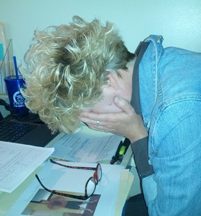Vaginal Yeast Gone with Homeopathy
Vaginal yeast infection, also called candidiasis, is a common problem of women caused by the overgrowth of the fungus candida albicans. This fungus normally resides in the body but is kept under control by lactobacillus bacteria. A healthy immune system will maintain a correct balance between the yeast and the bacteria, but if this balance […]
Vaginal Yeast Gone with Homeopathy Read More »


